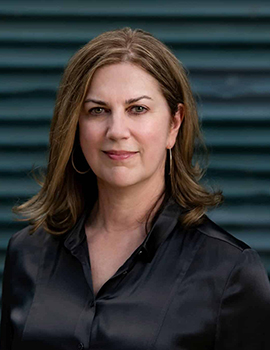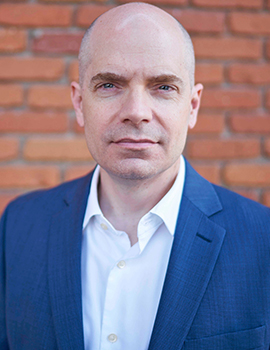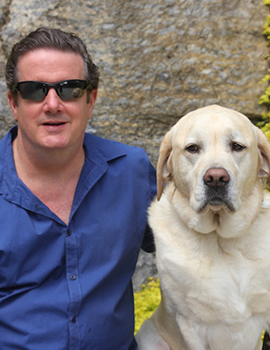

Features Thriller Heroes: Love, Betrayal, and Death
Thriller Heroes: Love, Betrayal, and Death
A Conversation with Three Bestselling Authors
By Guy Bergstrom
The hero of a thriller risks everything to save what they love—whether it’s their family from a criminal mastermind, their city from a serial killer, or their country from terrorism or war.
So, it makes sense that most thrillers also feature betrayal from within and heroes who question whether they’re fighting for the right side. Because nothing is worse than bleeding and dying for the wrong cause.
First, our authors:
MEG GARDINER
Meg Gardiner is the #1 New York Times bestselling author of sixteen novels. Her thrillers have won the Edgar Award and been summer reading picks by The Today Show and O, the Oprah magazine. Called “Hitchcockian” (USA Today) and “nailbiting and moving” (The Guardian), her books have been translated into more than 20 languages. Her latest title is Heat 2, co-authored with Michael Mann. Gardiner’s UNSUB series features FBI profiler Caitlin Hendrix, and UNSUB won the 2018 Barry Award for Best Thriller.
CHRISTOPHER FARNSWORTH
Christopher Farnsworth is a bestselling novelist, screenwriter, and journalist. His work has been published in more than a dozen countries, translated into nine languages, and has been a finalist for the Goodreads Choice Awards. Christopher’s work has also appeared in the Los Angeles Times, the New York Post, the New Republic, Washington Monthly, and on The Awl. Born and raised in Idaho, he worked as an award-winning investigative and business reporter before selling his first script, The Academy, to MGM.
BOB MAYER
Bob Mayer is a New York Times bestselling author, graduate of West Point, and former Green Beret. He is one of the top multi-genre bestselling authors in the world, with more than 80 books published and in excess of 6 million books sold, including the #1 series The Green Berets, Area 51, and Atlantis.
HEROINES
While there are more thrillers featuring heroines, there are mountains of novels where the plot is a thriller, but the protagonist is a woman and therefore shelved in the Romance section. Isn’t this archaic and some kind of BS?
M.G.: Some kind? It’s USDA Prime.
B.M.: Ha. The biggest secret in publishing is that romance rules. More than that, indie authors rule romance. How many indie thriller authors can we name? Look at the top 100 thrillers. How many indies?
Then look at a top 100 romance bestseller list. Almost ALL indies. Making tons of money. So, romance writers could care less what people think. But don’t tell Jennifer Crusie that.
What was funny in the Liz Danger series, spoiler alert, is that in all three books, my male hero never shoots anyone while Liz does. It’s pretty amazing since I am known for a decent body count.
You do bring up a good point. Lots of suspense out there with female leads, and they do get shuffled off to romance. The interesting thing is that of all the genres, there is sort of a career path for romance writers. You start with category romance. Then, move to single titles. Then to “woman’s fiction,” whatever that is.
Off the top of my head, I think of Tess Gerritsen and some others who are considered suspense writers. And there is a big difference between suspense and thriller. I can’t think of a top female protagonist thriller series that is marketed purely as a thriller. I’m sure there has to be. But it goes back to who the audience is.
C.F.: Part of this is probably marketing; romance simply sells better than thrillers. But a part of me thinks, yeah, those should be our readers. As I said before, I am all for new and different protagonists and would like to see more thriller heroines.
Lee Child is leaving money on the table by not starting a separate series about Frances Neagley, Reacher’s omnicompetent former colleague. There are plenty of women who could carry their own books as series protagonists instead of supporting characters.
BETRAYAL
Many thrillers feature betrayal from within, with a trusted mentor, boss, lover, or sidekick. Why do you think betrayal is so persistent, and what painful lessons has it taught your protagonists?
M.G.: Betrayal is primal. It cuts deeper than other wounds because it comes from those we love and trust. Done well, it’s a powerful plot twist.
But it’s more than a thriller trope. Dante reserves the Ninth Circle of Hell for betrayers. The central narrative of Christianity turns on betrayal by a close friend—delivered with a kiss.
It’s a stab in the heart. Sometimes literally.
Betrayal has taught my protagonists to judge risk versus reward when you’re trusting others with your gun or your heart.
B.M.: Betrayal is brutal. I think it is almost a necessary trope.
Think Ice Station Zebra and the James Brown character getting shot by mistake since the protagonist thinks he’s the double agent.
The betrayal is a big twist in the plot. The hard part is making the motivation of the betrayer believable. Again, it’s often revenge. There, it works. Always remember that one man’s freedom fighter is someone else’s terrorist.
The biggest thing is that the motivation has to be believable.
C.F.: Betrayal is a part of politics and espionage, which I’ve written about a lot and which are familiar and rich areas for mysteries and thrillers.
Besides, it’s always fun to see who’s going to stick the knife in your hero’s back. I think every writer loves the idea of leaving the reader open-mouthed with a twist they didn’t see coming. (I know I do.) It teaches our heroes they are not infallible and that they have blind spots like everyone else. They can be weak. They can be human.
But betrayal also speaks to the idea that no one is above temptation or corruption. Our heroes are often people who take the law into their own hands. They break the rules they’re meant to uphold. They wield power.
So, the betrayal by someone close to them is a good reminder that they must adhere to an unshakable moral code, or they could slide over to the dark side, too. There’s a thin line, sometimes, between doing something because it’s right and believing whatever you do is right.
LOVE IS TEMPORARY OR DEADLY
It’s common for thrillers to feature one-time lovers you never see again or lovers and family members constantly put in danger by a series of villains. How do you deal with that?
M.G.: I love writing thriller protagonists who have hot, happy, rewarding relationships. For both plausibility and survival, it helps if their honeys are federal agents or combat search and rescue experts. Toss in a fighter pilot now and then. An F-18 jock. Yeah, call sign Sidewinder.
Public Service Announcement: before you date a thriller hero, check to see how many previous lovers were poisoned by the FSB or sucked out the window of a jet during an in-flight gun battle. Swipe left.
B.M.: The reality for Special Operations Forces is that most get divorced. The odds are against having a home life due to constant deployments. Also, the “alpha” male tends to spread their oats, to put it mildly.
In my Will Kane series, my protagonist has a one-time lover who shows up again and again. So, it’s not one-time, but it’s hit and miss, and he never knows when she will be there. He doesn’t even really know who she is.
For me, in the midst of a thriller, to have a character stop and have a fling is pretty unrealistic. There’s a ticking clock, people. But it’s a trope of the genre.
Totally different ball game in romance. The trope there is the HEA—Happily Ever After. But you have to ask: will there be one after just six days, as in the manuscript we just finished, Arresting Anna? After all they’ve been through, the hero asks the heroine on a real date. Who knows what happens after that, but at least no one is shooting at them. That we know of.
C.F.: There’s the old saying that whoever gazes into the abyss learns the abyss gazes back. That’s used a lot to explain why thriller heroes can’t have normal lives. Their calling is too dangerous, too dark, and too risky. It almost literally contaminates everything around them.
And while that can be fun in a noir thriller, it implies that the world is too sick to allow anyone to have a truly happy life. I’ve played with that idea in my horror-inflected books, but I’m growing less and less enamored of it. If that’s true, then what’s the point? What are our heroes trying to save?
There’s always going to be a place for the hero who mans the wall, cutting themselves off from the society they protect, but I believe heroes should be a part of the world. The abyss can stare back all it wants, but it doesn’t mean that we dive into it.
Cops, FBI agents, and Navy SEALs all have families in the real world. There’s no reason they can’t in thrillers, too. I think if a hero can be brave enough to face down terrorists or psychopaths, they can face the fears that come with marriage and parenthood.
Thriller Heroes: Love, Betrayal, and Death
Credit for pixabay shot: Image by Sam Williams from Pixab
- Thriller Heroes: Love, Betrayal, and Death - February 22, 2024
- The Past, Present, and Future of Thriller Villains - October 12, 2023
- International Thrills: Catherine Ryan Howard - August 1, 2022



